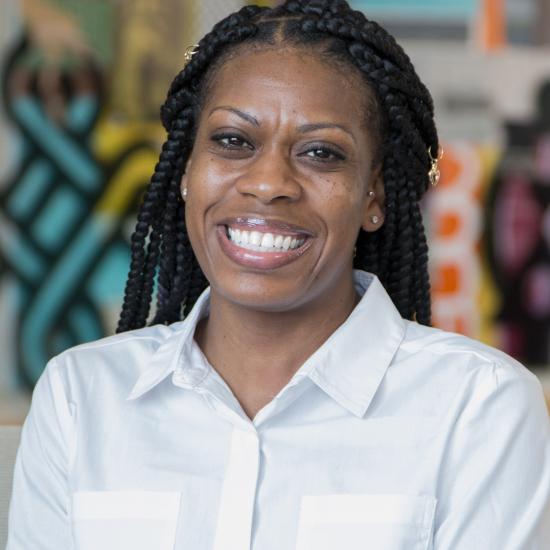Hello Fellows: Meet Evette Farley
Wilder employees have the opportunity to apply for Kingston Fellowships, an honor awarded annually based on accomplishments, commitment to human services and leadership potential. In March 2016, Wilder awarded fellowships to 11 employees spanning a variety of professional backgrounds. The fellowships help these professionals to study, teach, conduct research, exchange ideas and develop innovative programs to address community concerns.
In Hello, Fellows, we introduce the 2016 Kingston Fellows. This week, we catch up with Evette Farley.
What is your role at Wilder?
I am a Kofi therapist providing school-based mental health services and also in-home family therapy. We provide case management when needed and offer consultations with school staff about mental health.
For me, an example of what’s key to Kofi Services is our focus on rites of passage for fifth graders, to help prepare them for middle school. We talk about African American heritage and history and black pride. We meet with the kids once a month on a non-school day. Once we took them to Golden Thyme, a black-owned coffee shop in Saint Paul. We do community service projects such as packing meals for Feed My Starving Children. Each month we attach a Kwanzaa principle to the activity so they can develop pride in and knowledge of their culture.
That’s the part that I think is different from any other school-based mental-health program. I think it’s important for people of color to get in touch with their heritage, and it’s really exciting for kids to know about their ancestors.
Tell us about your background before coming to Kofi.
After completing my master’s degree and before I came to Kofi, I was working in the mental health field at a treatment center. Most of the clients that I worked with had some kind of chemical health concern as well as a mental health need. The work was really challenging because you have to show this population that they are affected by both chemical use and mental illness. It’s not just one or the other.
I had never imagined working primarily with children; I always said I’m not a kid person. Through working at Kofi, I have found that kids can do the simplest thing and I’ll just smile. They can do the smallest thing and it will just brighten my day.
What will you use the Kingston Fellowship to achieve?
Working in Kofi, I noticed that some parents had chemical and mental health concerns. If I didn’t have a chemical health background, I wouldn’t have known what was going on. I applied for a Kingston Fellowship because I decided to finish obtaining my license in alcohol and drug counseling so that I can have dual licensure and hopefully use that at Wilder.
The Kingston Fellowships are aimed at filling unmet needs in the field of human services and human services research. What unmet need is your fellowship filling?
When I was working at the treatment center, I noticed that there was a separation; we had a mental health department and a chemical health department. It would be better if therapists and counselors had knowledge and are licensed in both areas because many clients need treatment for both mental health and chemical dependency concerns, and the two conditions affect each other. A therapist with dual licensure will be more knowledgeable about these conditions.
Do you have an experience about diversity and cultural competence that you have encountered in your work?
When Kofi staff went to a conference in November for children’s mental health and schools, I noticed that most of the workshops didn’t have any reference to culture. Two of us from Kofi presented in a workshop about mental health with African American culture, but we did not hear references to culture in other workshops. It was eye opening for me to realize it wasn’t discussed. I’m not sure if people are scared to talk about diversity or culture, or if there’s another reason. But we need to keep talking about it.
Evette Farley is a therapist with Kofi Services, a culturally specific, school- and home-based program developed to increase the positive functioning of African-American youth.
